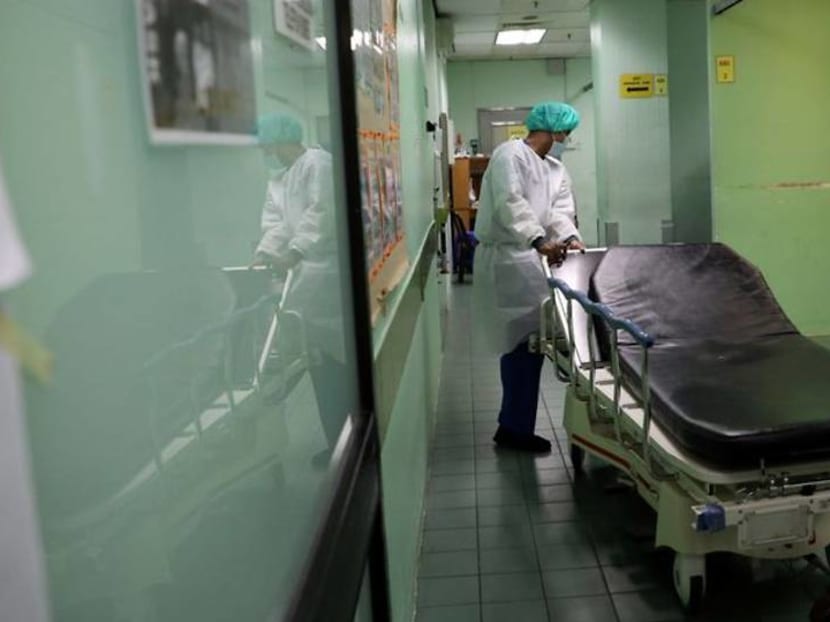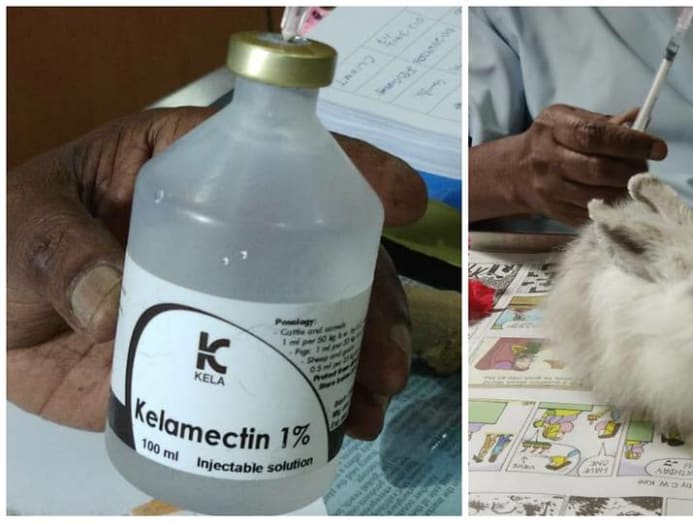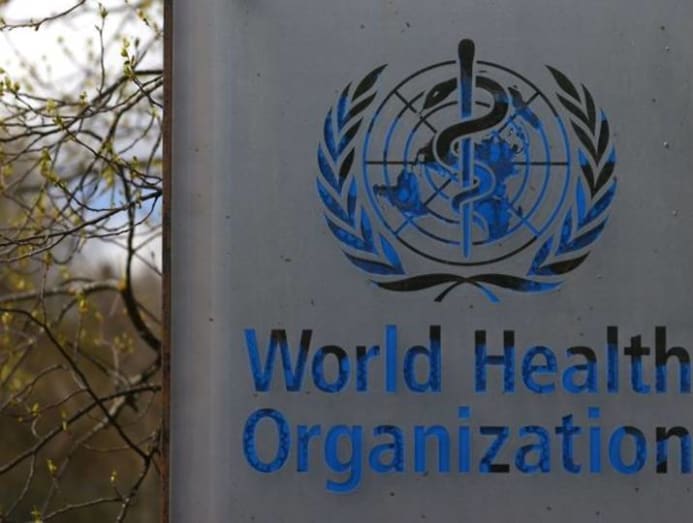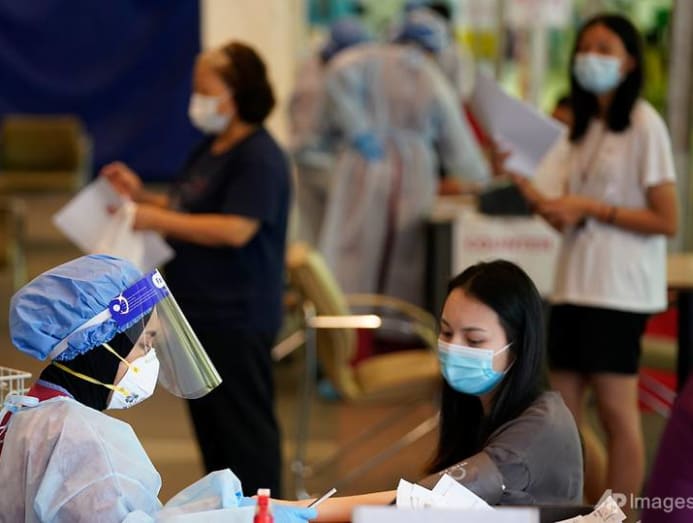What is ivermectin and why Malaysia is in no rush to approve it for COVID-19 treatment

A health worker wearing a protective suit arranges hospital bed at Emergency Department in the Kuala Lumpur Hospital, amid the coronavirus disease (COVID-19) outbreak, in Kuala Lumpur, Malaysia May 23, 2020. REUTERS/Lim Huey Teng/Files
KUALA LUMPUR: The drug ivermectin, which has all along been used for veterinary treatment of parasites, has come under the spotlight after calls for it to be included as part of Malaysia’s list of treatments for COVID-19.
The focus on the drug came after news reports in April 2020, citing how researchers at Australia's Monash University had experimented with the drug and found that a single dose could stop the COVID-19 virus from growing in cell culture within 48 hours.
Malaysia's health ministry announced on Jun 5 that ivermectin trials have been initiated. These trials will be done by the ministry and Institute for Clinical Research (ICR) at 12 ministry hospitals.
The trial was approved by the ministry’s Medical Research and Ethics Committee on May 25 and the first patient was enrolled at the end of May. The ministry expects the trial to be concluded by September.
Meanwhile, calls for ivermectin to be approved for COVID-19 use have continued to grow.
READ: More than 13,000 new COVID-19 cases in Malaysia in 3rd straight day of record numbers
In early June, a senior citizen even lodged a police report in Johor state, accusing the health ministry's director-general Noor Hisham Abdullah of committing a crime by refusing to adopt ivermectin as a treatment for COVID-19 patients.
A loose coalition of medical and consumer groups, calling itself the Malaysian Alliance for Effective Covid Control (MAECC) has also issued a statement urging the government to include ivermectin in its list of drugs used to treat the coronavirus.
In an online press conference on Jun 21, the coalition called for the government to fast-track the use of ivermectin, highlighting that the drug has been in use over the last four decades, with more than 3.7 billion doses prescribed.
The attention on ivermectin is not only happening in Malaysia. In Indonesia, pharmacies are reportedly running out of the drug, following viral social media posts touting its potential as a coronavirus treatment.
READ: Desperate Malaysians fly white flags as a call for help to survive COVID-19 lockdown
Here's what you need to know about ivermectin, and why the Malaysian health authorities are adopting a considered approach:
WHAT HAS IVERMECTIN BEEN USED FOR?
Dr Vellayan Subramaniam, a long-serving veterinarian and former deputy director of Malaysia's national zoo, explained that ivermectin was first discovered in the 1970s. It became more commonly used from the early 1980s.
“This was first used for food livestock, and later, it was extended to equines, then companion animals.
“Later we extended ivermectin to exotic animals and pets, except tortoises and turtles for which the drug is toxic. Some dog breeds are also susceptible to ivermectin intoxication,” he said.

The veterinarian explained that it was common for drugs to be repurposed, even across species from animal to human and vice-versa.
“This is what you call off-label use. We already use ivermectin to treat parasite infections in humans like lymphatic filariasis, caused by worm infection.
“We also use it to treat ectoparasites, meaning parasites that live on your body surface by applying ivermectin as a topical solution.”
Hence, he said that it was not impossible for laboratory researchers to discover ivermectin as a potential treatment for the current pandemic.
READ: 'Quite impossible' for COVID-19 vaccine recipient to be injected with empty syringe, says Selangor health department
WHAT IS THE WHO SAYING?
The World Health Organization (WHO) and other leading regulatory agencies such as the United States Food and Drug Administration and European Medicines Agency have cautioned that there is insufficient evidence on ivermectin's efficacy in treating COVID-19.

In March this year, WHO stated that current evidence on the use of ivermectin for COVID-19 patients was inconclusive. Pending further data, it recommended that the drug only be used within clinical trials.
WHO explained that due to the increased international attention on the drug as a potential treatment, a guideline development group of experts from multiple specialties was formed. The group reviewed pooled data from several randomised controlled trials.
“They determined that the evidence on whether ivermectin reduces mortality, need for mechanical ventilation, need for hospital admission and time to clinical improvement in COVID-19 patients is of ‘very low certainty’,” the WHO stated, explaining this was due to the small sample sizes and methodology limitations of available trial data.
WHAT IS THE MALAYSIAN HEALTH MINISTRY'S POSITION?
The health ministry is in the midst of studying ivermectin’s use for COVID-19 treatment.
In an interview with Bernama on Jul 10, Dr Noor Hisham explained that the ministry was studying the drug’s effectiveness and its side effects for COVID-19 patients in Category Three (those with lung infections) to Category Five (critical with multiple organ complications).

On Jul 11, the ministry posted on its Facebook page that ivermectin is only allowed to be used on an off-label basis, with close supervision by certified doctors.
“Until now, clinical studies’ results are insufficient to prove that ivermectin can treat or prevent COVID-19, only vaccines have been proven to prevent COVID-19,” the ministry stated.
The ministry also listed some side effects from the drug’s usage, including skin rash which might necessitate hospitalisation, nausea, vomiting, stomach distress and diarrhea, swelling, sudden low blood pressure and liver damage, as well as seizures and disorientation.
IVERMECTIN AN "IMPORTANT, USEFUL OPTION": MEDICINE ASSOCIATION
In the meantime, the proponents of ivermectin are saying that the trial process should be expedited.
Dr Vijaendreh Subramaniam, who is the president of the Malaysian Association of Advancement of Functional & Interdisciplinary Medicine (MAAFIM) said that waiting for the completion of the trial in September might be too late given the urgency of the crisis. MAAFIM is a participating body in the MAECC group.

When interviewed by CNA, Dr Vijaendreh noted that Malaysia’s COVID-19 crisis was becoming worse by the day.
“I think it is a situation that needs urgent addressing,” Dr VIjaendreh said, adding that ivermectin was already being used in some countries to treat the pandemic.
“The Czech and Slovak republics have seen very good responses, while India, at the height of its massive crisis, also used the drug to contain the disease too,” he noted.
Dr Vijaendreh opined that Malaysia is currently at the same stage of the COVID-19 crisis where India was at two months ago.
READ: Indians turn to black market, unproven drugs as COVID-19 surges
“But we must be very clear, ivermectin is not a magic bullet. It doesn't mean that if we use ivermectin, all our COVID-19 problems go away,” Dr Vijaendreh said.
“But it is emerging as an important, useful option to be included in our treatment arsenal, especially in the early stages and as a prophylactic (to prevent disease),” Dr Vijaendreh explained.
On MAECC’s part, he said, the coalition would continue to engage the ministry to have ivermectin implemented earlier.

“We had a meeting with the ministry a few days ago on this issue, and we’ll continue to engage them, but the matter is in the ministry’s hands.
“But we will share information and data as it emerges, and hopefully they’ll be persuaded to use this approach to try and contain the pandemic as soon as possible,” Dr Vijaendreh said.
BOOKMARK THIS: Our comprehensive coverage of the coronavirus outbreak and its developments
Download our app or subscribe to our Telegram channel for the latest updates on the coronavirus outbreak: https://cna.asia/telegram





